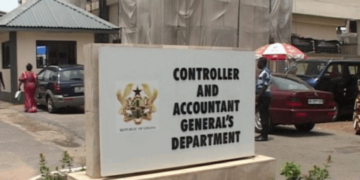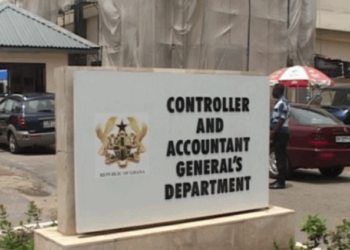The Commission on Human Rights and Administrative Justice (CHRAJ) and the Ghana Statistical Service (GSS) are conducting the country’s first-ever real corruption study to offer accurate information on corruption levels.
For the poll, the two organizations are now examining around 250,000 households using the methods of the United Nations Office on Drugs and Crime (UNODC), a United Nations corruption agency.
Data collecting officers are now on the ground around the nation gathering information for a report that will define how Ghana combat corruption in the future.
When finished, the survey will take the battle against corruption to a new level, where corruption will be based on reality rather than perception.
Corruption prevalence
Mr Joseph Whittal, Commissioner of CHRAJ, said in an exclusive interview with the Daily Graphic in Accra last Friday that the survey would not only expose how corruption manifested in households and the regional prevalence, but would also serve as a baseline to deploy effective measures better than what the corruption perception index offered.
He said that the effort will therefore offer the nation with the ability to quantify the level of corruption using data from actual instances, rather than the corruption perception index, to assist in the battle against the menace.
Transparency International (TI) has used its local chapter, the Ghana Integrity Initiative (GII), to evaluate Ghana’s corruption score and rating throughout the years as an indication of people’s perception.
Survey
“We are currently in the field and hoping to do an evaluation of 250,000 households, out of which, when the report comes out in June, we hope the baseline, in terms of where we stand on actual corruption, will give us the basis to see what we need to do annually to improve the fight against corruption,” he said.
“It is not about perception but based on the reality of Ghanaians who have, one way or another, been made to get a service either by giving money or doing something corrupt,” he explained.
Although Ghana has made progress against corruption via different organizations over the years, he said that the country could no longer depend on perception to address corruption challenges.
“The whole issue of corruption is based on perception,” Mr Whittal said, adding that with corruption perception index, it was not clear who fed the perception, who gave the details and who was interviewed.
“We don’t know because it is done by TI, using businesses and others which may not necessarily be available for anybody to question,” he explained.
Novel initiative
Mr Whittal said that the objective of the CHRAJ was to safeguard and promote administrative justice in order to guarantee that the government and its officers were responsible and transparent.
He described the survey’s suggestions as an innovative approach that may result in some legal revisions and changes in certain attitudes
The survey would again help CHRAJ, as an investigating body, to act and use the information for advocacy work in terms of getting people to know what they ought to do and not do when it came to issues of corruption”, he added.
Corruption fight
According to Transparency International, the government has achieved tremendous progress in the battle against corruption.
The adoption of anti-corruption laws in financial administration, public procurement, internal audit, and whistleblowing is one of the factors.
Parliament has also enhanced its reputation as a watchdog, with the Public Accounts Committee conducting public hearings to reveal corruption concerns.
The creation of the Office of the Special Prosecutor to combat corruption without fear or favor by pursuing corruption cases has increased citizen confidence that corrupt activities in the public sector would be curtailed.
Mr Whittal expressed optimism that removing the idea of corruption and presenting solid proof would put Ghana in a better position to deal with the problem, which was affecting its progress.
Read Also: Double-track system not abolished – Rev. Ntim Fordjour
SOURCE: GRAPHIC ONLINE
























